Your kitchen is more than just a place to prepare meals; it’s the heart of your home, where cherished memories are created and shared. And at the center of it all, your kitchen countertop plays a vital role. Choosing the right countertop can transform not only the aesthetics of your kitchen but also its functionality. With myriad options available, it’s essential to understand the choices and make an informed decision. This comprehensive guide’ll delve into kitchen countertops, exploring the different types, styles, costs, installation processes, and maintenance tips to help you find your perfect match.
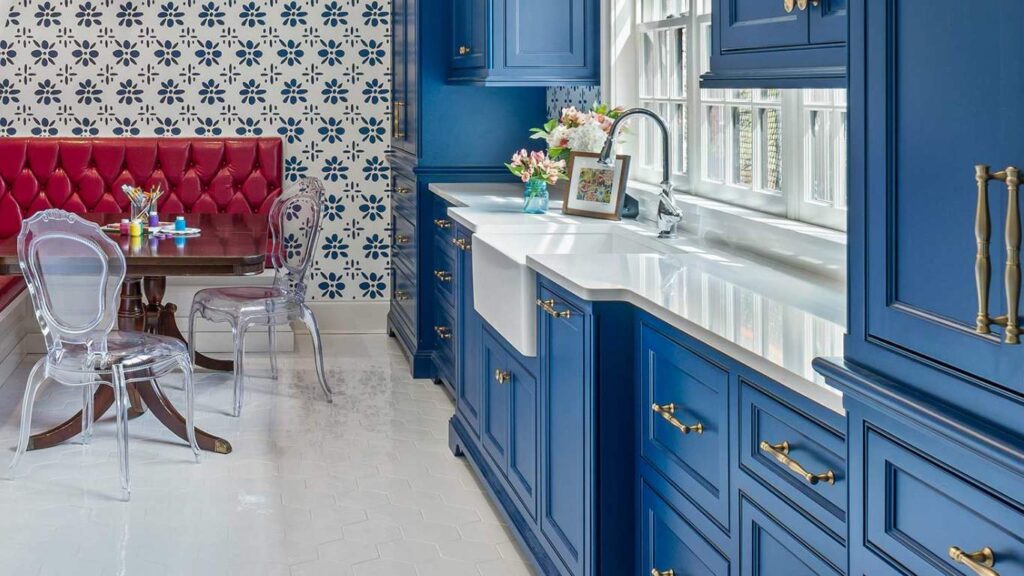
Types of Countertops
When you select the perfect countertop for your kitchen, you have many options. Each type has its unique characteristics and charm. There are various countertops to choose from, each with unique appeal and practicality. From the timeless elegance of granite and marble to the durability and low maintenance of quartz, the warm and inviting nature of butcher block, or the budget-friendly versatility of laminate and tile, there’s a countertop material to suit every kitchen style and homeowner’s needs. Selecting the right countertop is a crucial decision, as it can significantly impact your kitchen’s functionality and aesthetics.
Kitchen Countertop Styles: Finding Your Perfect Match
Now that you’re familiar with the countertops available, it’s time to consider which style best suits your kitchen and lifestyle. Here, we’ll explore the various styles and their pros and cons to help you make a better decision.
Granite Countertops: Nature’s Timeless Masterpiece
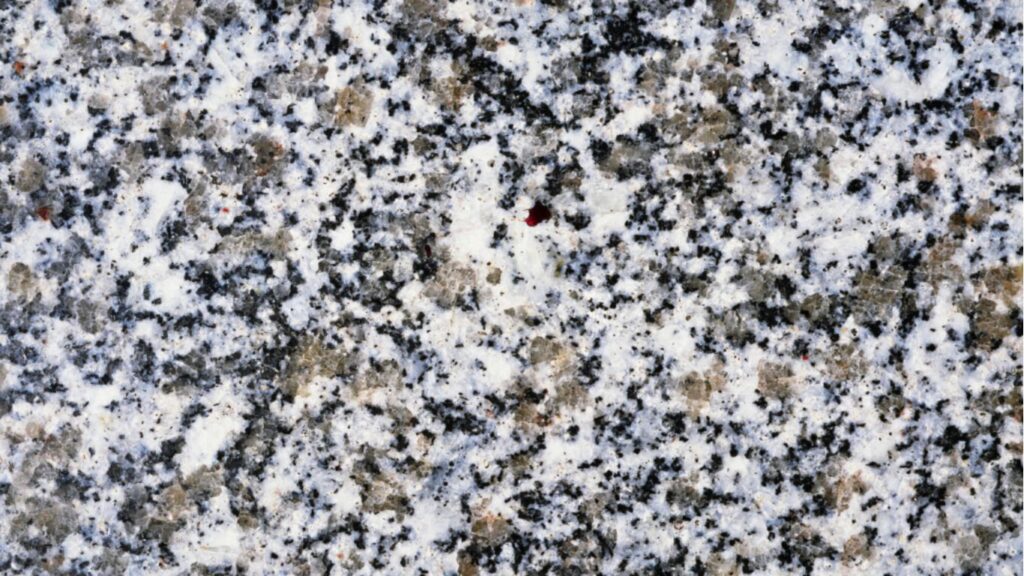
Imagine gazing upon a granite countertop and being transported to the heart of a rugged mountain range. This style is nature’s timeless masterpiece, where the forces of the earth have merged to create a surface that’s as solid as a mountain and as vibrant as a forest. With its swirling patterns and a palette of rich, earthy hues, granite countertops effortlessly blend the artistry of nature with the practicality of your kitchen. This is where rugged beauty meets culinary grace.
Pros:
- Luxurious and elegant
- Resistant to heat and stains
- Adds value to your home
Cons:
- Requires regular sealing
- Relatively expensive
- Heavy and not DIY-friendly
Marble Countertops: Elegance in Every Vein
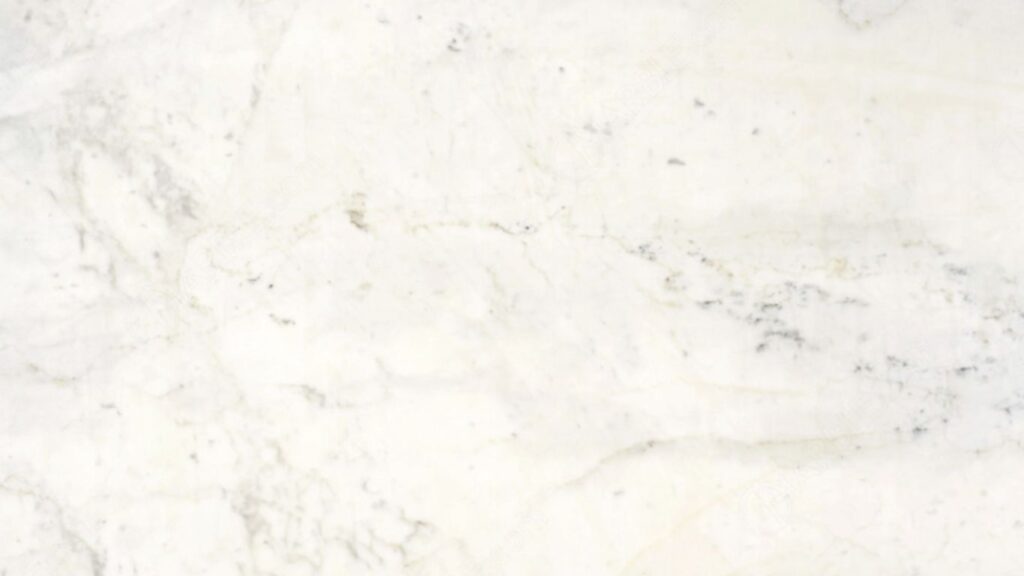
Marble countertops are the epitome of elegance. They are like a canvas where the universe has painted delicate veins and swirls, creating a stunning work of art for your kitchen. Like a sculpted alabaster, marble countertops exude luxury and sophistication. The soft, cool touch beneath your fingertips reminds you of ancient statues and opulent palaces. Every moment spent in your kitchen is a timeless celebration of beauty and grace.
Pros:
- Timeless and sophisticated
- High-end aesthetic
- Unique appearance
Cons:
- Prone to staining and scratching
- Requires regular sealing
- Expensive
Quartz Countertops: The Engineered Marvel
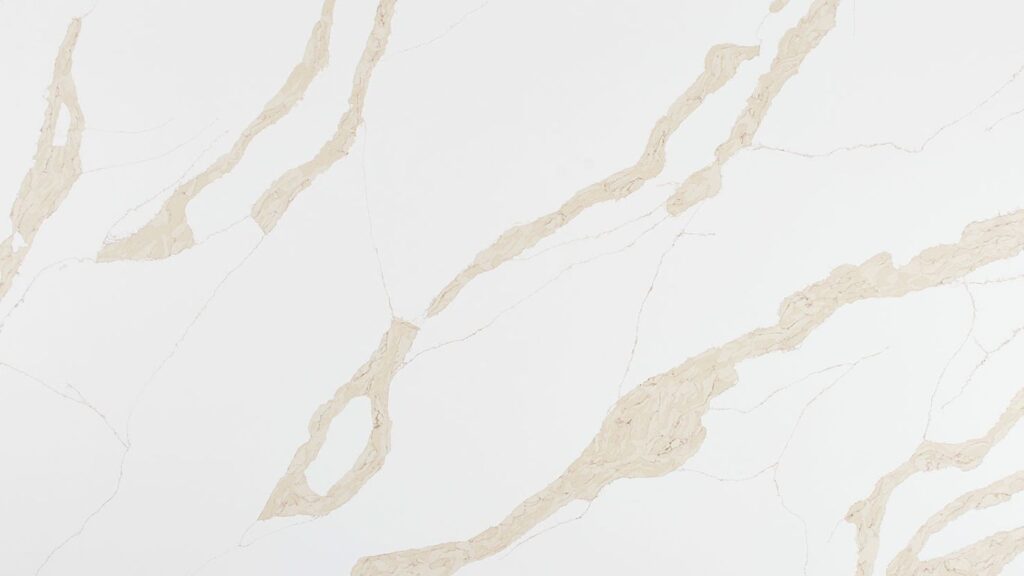
Quartz countertops are a marvel of engineering. It’s as if the heavens and humans collaborated to create a countertop that’s as durable as it is versatile. Quartz surfaces shimmer like a star-studded night sky, offering a range of colors and patterns that mimic the most precious gems. This style stands resilient against the tests of time, echoing the qualities of the celestial bodies that have guided sailors and dreamers throughout history. With many quartz countertop design ideas, your kitchen becomes a space of boundless possibilities.
Pros:
- Low maintenance
- Resistant to stains and scratches
- No sealing required
Cons:
- Relatively expensive
- Heavy and not DIY-friendly
Wood Kitchen Countertops: Nature’s Warm Embrace
Wood countertops embrace you with the warmth of a rustic cabin. Each wooden plank tells a story reminiscent of age-old forests and rustic farmhouses. The texture beneath your palms is like the touch of ancient wisdom, bringing natural charm and character to your kitchen. Whether you choose the fine grains of maple or the earthy walnut hues, wood countertops bring the essence of the great outdoors right to your culinary sanctuary. Cooking here is like taking a journey back to your roots.
Pros:
- Warm and rustic appearance
- Adds a cozy vibe to your kitchen
- Durable and resistant to damage
Cons:
- Require regular maintenance
- Vulnerable to water damage
- Not as heat-resistant
Butcher Block Countertops: A Chef’s Delight
Butcher block countertops are a chef’s delight. These sturdy surfaces have seen their fair share of slicing, dicing, and chopping, and they proudly wear their history. Their thick, hearty appearance evokes the sensation of a bustling kitchen in a French bistro or New York deli. It’s a place where culinary artistry happens, where food is prepared with passion and precision. Butcher block countertops are the stage for your culinary performances.
Pros:
- Warm and inviting aesthetic
- Functional for food preparation
- Renewable and repairable
Cons:
- Regular maintenance required
- Vulnerable to scratches and dents
- Susceptible to moisture
Tile Kitchen Countertops: Mosaics of Creativity
Tile countertops are like mosaics of creativity. Each tile is a brushstroke on the canvas of your kitchen, allowing you to create a masterpiece that’s uniquely yours. The kaleidoscope of colors and patterns gives you endless design possibilities. Tiles come together like pieces of a puzzle, forming a surface that’s as diverse as the world’s cultures and traditions. Every day in your kitchen is a celebration of art and individuality.
Pros:
- Inexpensive
- DIY-friendly
- Many style options
Cons:
- Prone to chipping
- Grout seams are hard to clean
- Less heat-resistant
Porcelain Kitchen Countertops: Modern Minimalism
Porcelain countertops are the embodiment of modern minimalism. It’s as if porcelain has captured the spirit of a contemporary art gallery and brought it to your kitchen. The subtle beauty of these countertops is like an elegant blank canvas, allowing you to paint your kitchen’s personality with a minimalist brush. Cooking here is a dance of simplicity and style.
Pros:
- Durable and scratch-resistant
- Resistant to stains and bacteria
- Hygienic and low-maintenance
Cons:
- Requires professional installation
- Limited availability
- Prone to chipping at edges
Concrete Kitchen Countertops: Industrial Elegance
Concrete countertops blend industrial aesthetics with timeless elegance. They are the epitome of urban chic, reflecting a cityscape’s sleek and robust character. The cool, smooth surface brings to mind the urban jungle’s bustling streets and architectural wonders. Concrete countertops are the intersection where raw strength meets refined design, making your kitchen a stage for culinary adventures in an industrial landscape.
Pros:
- Customizable styles
- Contemporary appearance
- Highly durable
Cons:
- Requires regular sealing and maintenance
- Prone to stains
- Heavy and not DIY-friendly
Laminate Countertops: Affordable Versatility
Laminate countertops are the chameleons of the kitchen world. They are like a palette of colors and patterns, offering budget-friendly versatility. Laminate countertops can mimic the look of various materials, from wood to stone, allowing you to transform your kitchen without breaking the bank. Every day is an opportunity for a fresh start and a new design adventure with laminate countertops.
Pros:
- Budget-friendly
- Low maintenance
- Versatile style options
Cons:
- Prone to chipping
- Not as durable as natural stone
- Limited heat resistance
Custom or Stock Countertops: Which Is Right for You?
You’ll also need to decide between custom and stock options when choosing countertops. Your decision should consider factors like your timeline, budget, and the level of customization you desire.
Custom Countertops
These are tailored to your kitchen’s exact measurements and offer a wide range of design possibilities. They are ideal for homeowners who have specific size or style requirements.
Pros:
- Tailored to your kitchen’s exact measurements
- Extensive design possibilities
- Can accommodate specific style requirements
Cons:
- Longer lead times for fabrication and installation
- Typically more expensive than stock options
Stock Countertops
Stock countertops are pre-made and come in standard sizes. They are a more cost-effective option and are readily available for quick installation.
Pros:
- Quick availability for same-day in-store pickup or delivery
- Cost-effective choice
- Suitable for standard kitchen layouts
Cons:
- Limited size and style options
- May not fit non-standard kitchen layouts
Here’s a more detailed look at both options:
To determine which option is right for you, consider your kitchen’s layout and your personal preferences. Custom countertops are the go-to choice for those with unique design visions or non-standard kitchen configurations. However, stock countertops might be the way to go if you’re working with a standard layout and need a cost-effective and quick solution.
Prefabricated Countertops: Convenient and Cost-Effective
If you’re looking for a convenient and cost-effective countertop solution, prefabricated countertops are a great option. These countertops are pre-cut and finished, available in standard sizes, and made from materials such as granite, marble, quartz, and travertine. They offer a balance between affordability and style.
Pros:
- Quick and convenient
- Cost-effective
- A variety of material choices
Cons:
- Limited customization options
- May not fit non-standard layouts
Prefabricated countertops are often suitable for homeowners who want a reliable and budget-friendly option without the wait associated with custom designs.
Most Common Kitchen Countertop Colors
The color of your countertop plays a crucial role in your kitchen’s overall look and feel. Let’s explore two of the most common countertop colors:
White Countertops
White countertops have surged in popularity for their clean and timeless appearance. They brighten up the kitchen, create a sense of spaciousness, and offer versatility when it comes to pairing with different cabinet colors and backsplashes.
Recommended for:
- Contemporary kitchens
- Small kitchens to create a sense of space
- Those looking for a timeless and versatile look
Black Countertops
Black countertops are known for their dramatic and luxurious appeal. They make a bold statement and create a striking contrast with lighter cabinets.
Recommended for:
- Modern and dramatic kitchen designs
- Those looking for a bold and sophisticated look
- Kitchens with ample lighting to counteract the darkness
Ultimately, the color of your countertop should reflect your style and the atmosphere you want to create in your kitchen. Whether you choose classic white or bold black, consider how the countertop color complements the rest of your kitchen’s elements.
Countertop Cost: How Much It Costs
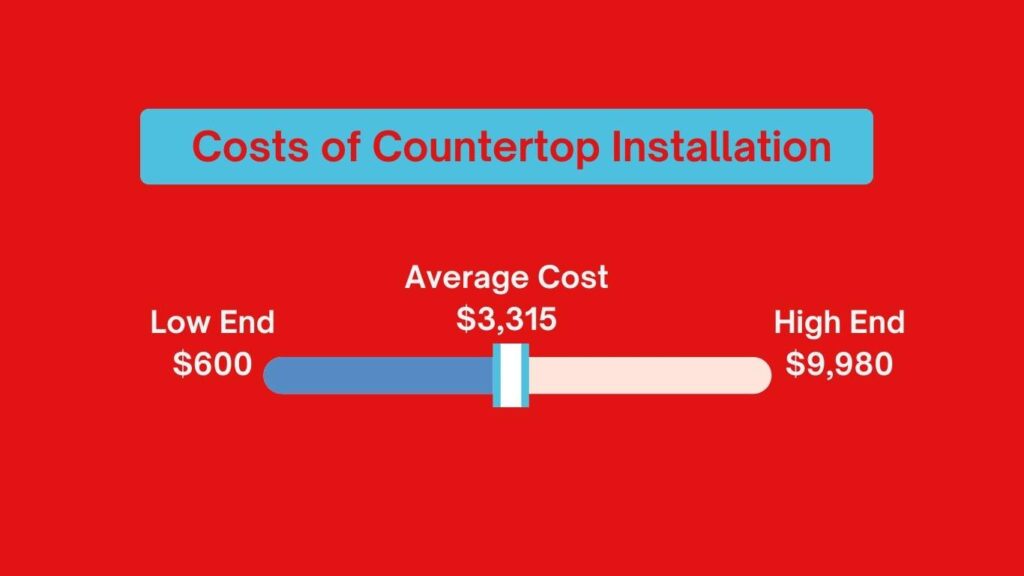
The cost of kitchen countertops depends on various factors, including the material, size, fabrication process, and installation. Here’s a general cost breakdown for some common countertop materials:
- Granite Countertops: Installed granite prices typically start at around $75 per square foot.
- Marble Countertops: Expect to pay more for the luxury of marble, with prices starting at $100 per square foot.
- Quartz Countertops: Quartz is in a similar price range to granite, starting at around $75 per square foot for installed countertops.
- Wood Countertops: Wood countertops vary in price depending on the wood species but generally start at $60 per square foot.
- Tile Countertops: Tile countertops are the most budget-friendly choice, with prices starting at around $5 per square foot.
- Porcelain Countertops: Porcelain countertops typically cost between $40 and $100 per square foot, including installation.
- Concrete Countertops: Concrete countertops range from $65 to $135 per square foot, including installation.
- Laminate Countertops: Laminate is one of the most affordable countertop choices, with prices starting at $10 per square foot.
Remember that these are average prices and can vary significantly based on your location, the project’s complexity, and additional features like edge profiles and backsplashes.
Kitchen Countertop Installation
Countertop installation is a crucial part of the process, as it ensures that your chosen material fits seamlessly into your kitchen. The complexity and time required for installation vary depending on the material you choose. Here’s a brief overview of the countertop installation process:
- Template Creation: A professional installer will create a template that matches your kitchen’s dimensions for custom countertops. For stock or prefabricated countertops, this step is often skipped.
- Material Fabrication: Custom countertops are cut and fabricated according to the template. Edges are shaped, holes for sinks and fixtures are cut, and any requested design elements are added.
- Preparing the Cabinets: The existing cabinets must be structurally sound and level. If not, adjustments are made to ensure the countertop sits correctly.
- Installation: The countertop is carefully positioned on top of the cabinets. It may be secured with adhesive or brackets, depending on the material.
- Edge Profile and Backsplash Installation: Edge profiles, such as bullnose or ogee, can be added to customize the appearance. Backsplashes are installed if desired.
- Sink and Fixture Installation: Sinks, faucets, and fixtures are attached and sealed properly.
- Sealing and Finishing: Some countertop materials, like granite and marble, require sealing to protect against staining. For concrete countertops, finishing may include polishing and sealing.
- Clean-Up and Inspection: The work area is cleaned, and a final inspection ensures everything is in order.
Remember that some materials, such as granite and marble, require professional installation due to their weight and fabrication complexity. In contrast, homeowners with some experience in home improvement projects can install DIY-friendly options like laminate or tile countertops.
Kitchen Countertops Maintenance: Keeping Your Investment Beautiful
Once you’ve invested in a beautiful new kitchen countertop, you’ll want to keep it looking its best. The maintenance required depends on the types of countertops you’ve chosen. Here’s a general overview:
Granite Countertops
Granite is known for its resilience, but it still requires proper care. Here’s how to maintain it:
- Regular Sealing: Granite should be sealed every one to three years to protect against stains and bacteria.
- Cleaning: Use a mild soap with water solution or a granite-specific cleaner to clean your countertop. Avoid abrasive cleaners and scouring pads.
- Avoid Harsh Chemicals: Do not use acidic or harsh chemicals on granite, as they can damage the surface.
Marble Countertops
Marble’s elegance comes with the need for vigilant maintenance:
- Frequent Sealing: Marble countertops require more frequent sealing, generally every few months. This helps protect against stains and etching.
- Immediate Spill Clean-up: Marble is prone to staining, so wipe up spills immediately to prevent permanent damage.
- Avoid Acidic Cleaners: Do not use acidic cleaners, as they can dull the surface.
Quartz Kitchen Countertops
Quartz countertops are relatively low maintenance:
- Routine Cleaning: Mild soap and water solution to clean quartz countertops. They are stain-resistant and do not require sealing.
- Avoid Harsh Cleaners: While quartz is highly durable, avoid using abrasive or harsh chemicals on it.
Wood Countertops
Wood countertops, such as butcher blocks, require special care:
- Oil Treatments: Regularly treat wood countertops with mineral oil or a wood-specific conditioner to keep them looking their best.
- Avoid Excess Moisture: Wood can warp or crack when exposed to excessive moisture, so wipe up spills promptly.
- Protect from Heat: Trivets or hot pads to protect the wood from heat.
Tile Countertops
Tile countertops require routine cleaning and maintenance:
- Regular Grout Cleaning: To maintain the appearance of tile countertops, clean the grout lines regularly to prevent discoloration.
- Avoid Harsh Cleaners: Use mild cleaners to avoid damaging the tiles.
- Re-grouting: Periodically, you may need to re-grout to keep the countertop looking fresh.
Porcelain Kitchen Countertops
Porcelain countertops are among the easiest to maintain:
- Routine Cleaning: Porcelain is stain-resistant and requires minimal effort to clean. Use a mild soap and water solution or a porcelain-specific cleaner.
- Avoid Harsh Cleaners: Steer clear of abrasive or acidic cleaners.
Concrete Countertops
Concrete countertops require diligent care to maintain their appearance:
- Regular Sealing: Concrete countertops need periodic resealing, typically every one to three years.
- Avoid Heat and Scratches: Employ trivets or cutting boards to safeguard the surface against heat and potential scratches.
- Clean with Care: Use a mild soap and water solution for cleaning; abrasive cleaners can harm the finish.
Laminate Countertops
Laminate countertops are easy to care for:
- Routine Cleaning: Clean with a mild soap and water solution or a laminate-specific cleaner.
- Avoid Scratching: Laminate can scratch, so use cutting boards and protect the surface from sharp objects.
By following these maintenance guidelines, you can ensure your investment in a beautiful kitchen countertop remains in top-notch condition for years.
Frequently Asked Questions About Kitchen Countertops
1. What is the best countertop to use in a kitchen?
- Traditional granite countertops are a top choice for homeowners, offering a high-end look and durable prep surface that adds value to your kitchen.
2. What type of countertop is most affordable?
- Laminate surfaces are considered one of the cheapest countertops available. They provide a seamless, uniform look, are relatively durable, and can be easily installed without professional help.
3. What are the best value-for-money kitchen countertops?
- For cost-efficient, long-term options, consider granite and other natural stone materials. Granite, in particular, is smooth, durable, and heat-resistant, making it a valuable choice for kitchens.
4. Is quartz or granite cheaper?
- Both quartz and granite maintain similar costs, with quartz being slightly less expensive. Luxurious quartz products, however, can be priced similarly to granite slabs.
5. What looks like quartz but is cheaper?
- Aluminum countertops are an alternative that visually resembles quartz or solid surface materials. Made from recycled waste aluminum flake, solid surface scrap, and recycled acrylic; they offer an appearance similar to quartz.
Your Guide to Choosing the Perfect Kitchen Countertops
In your search for the ideal kitchen countertop, remember that your decision will significantly impact your kitchen’s functionality and appearance. The options are vast, ranging from granite, marble, and quartz to wood, tile, porcelain, concrete, and laminate, each with distinct qualities and maintenance requirements. Consider whether custom or stock countertops or prefabricated options best align with your needs. The color of your countertop, be it classic white or bold black, sets the tone in your kitchen. Plan your budget accordingly, as the cost varies based on material, size, and style. After installation, follow the unique care instructions to preserve your countertop’s beauty. Your kitchen countertop is not just a surface; it’s the canvas for your culinary adventures, the gathering spot for loved ones, and a reflection of your style. With this guide, you’ll confidently choose the perfect countertop for the heart of your home.
